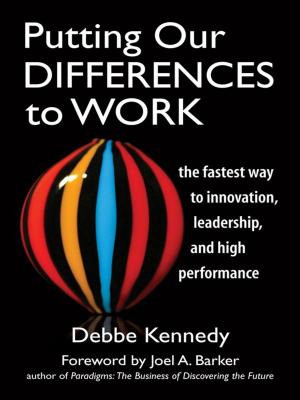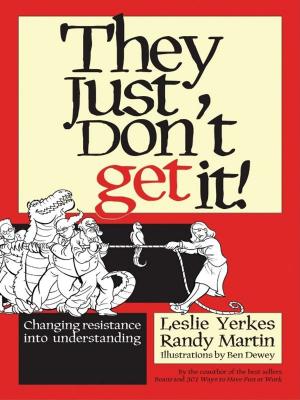Collaborative Intelligence
Using Teams to Solve Hard Problems
Business & Finance, Human Resources & Personnel Management, Organizational Behavior| Author: | J. Richard Hackman | ISBN: | 9781605099927 |
| Publisher: | Berrett-Koehler Publishers | Publication: | May 12, 2011 |
| Imprint: | Berrett-Koehler Publishers | Language: | English |
| Author: | J. Richard Hackman |
| ISBN: | 9781605099927 |
| Publisher: | Berrett-Koehler Publishers |
| Publication: | May 12, 2011 |
| Imprint: | Berrett-Koehler Publishers |
| Language: | English |
Intelligence professionals are commonly viewed as solo operators. But these days intelligence work is mostly about collaboration. Interdisciplinary and even inter-organizational teams are necessary to solve the really hard problems intelligence professionals face. Tragically, these teams often devolve into wheel-spinning, contentious assemblies that get nothing done. Or members may disengage from a team if they find its work frustrating, trivial, or a waste of their time. Even teams with a spirit of camaraderie may take actions that are flat-out wrong. But there is also good news. This book draws on recent research findings as well as Harvard Professor Richard Hackman’s own experience as an intelligence community researcher and advisor to show how leaders can create an environment where teamwork flourishes. Hackman identifies six enabling conditions – such as establishing clear norms of conduct and providing well-timed team coaching – that increase the likelihood that teams will be effective in any setting or type of organization.. Although written explicitly for intelligence, defense, crisis management, and law enforcement professionals it will also be valuable for improving team success in all kinds of leadership, management, service, and production teams in business, government, and nonprofit enterprises.
Intelligence professionals are commonly viewed as solo operators. But these days intelligence work is mostly about collaboration. Interdisciplinary and even inter-organizational teams are necessary to solve the really hard problems intelligence professionals face. Tragically, these teams often devolve into wheel-spinning, contentious assemblies that get nothing done. Or members may disengage from a team if they find its work frustrating, trivial, or a waste of their time. Even teams with a spirit of camaraderie may take actions that are flat-out wrong. But there is also good news. This book draws on recent research findings as well as Harvard Professor Richard Hackman’s own experience as an intelligence community researcher and advisor to show how leaders can create an environment where teamwork flourishes. Hackman identifies six enabling conditions – such as establishing clear norms of conduct and providing well-timed team coaching – that increase the likelihood that teams will be effective in any setting or type of organization.. Although written explicitly for intelligence, defense, crisis management, and law enforcement professionals it will also be valuable for improving team success in all kinds of leadership, management, service, and production teams in business, government, and nonprofit enterprises.















